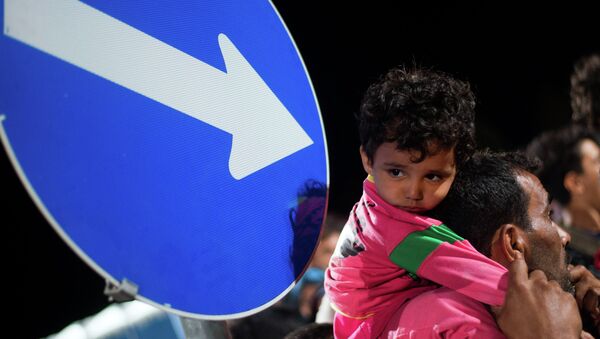UNHCR's call comes ahead of the Visegrad Group Summit in Prague on February 15, where leaders from the Czech Republic, Hungary, Poland and Slovakia (the so-called V4) will discuss regional issues, including the ongoing refugee crisis. Bulgaria and the Former Yugoslav Republic of Macedonia are also invited to participate.
UNHCR says more responsibility-sharing and solidarity needed for refugees across Europe and world more generally.
— UNHCRNews (@RefugeesMedia) February 12, 2016
The European Commission has faced major opposition to its plan to relocate 160,000 refugees from Italy and Greece ever since the plan was first discussed in June. It was finally agreed in September that the refugees would be relocated across Europe under a quota system, however — so far — only around 500 have been moved amid disagreements over the mandatory quota system.
UN @Refugees concerned by increasing restrictive measures, urges comprehensive European response — @melissarfleming pic.twitter.com/d6oyqZVLzr
— UN Geneva (@UNGeneva) February 12, 2016
Many Central European countries are refusing to take in an allocated quota, which is based on a formula that considers: the size of the population (40%), total GDP (40%), the average number of asylum applications over the previous four years (10%) and the unemployment rate (10%).
"While UNHCR fully understands that public opinions can sometimes be apprehensive about the unfolding situation in Europe, it is important to give both relocation and resettlement a chance to work. These tools of solidarity create an alternative to smuggling and trafficking and could reduce dangerous onward movements," said Montserrat Feixas Vihe, UNHCR's Regional Representative for Central Europe.
Measures to discourage refugees entry in Europe is race to the bottom that helps no one. Solutions to refugee situation needed + possible.
— UNHCRNews (@RefugeesMedia) February 12, 2016
'Cannot Be Bystanders'
"It is time for the leadership in Central Europe to set a strong example and commit to help families fleeing war and human rights violations, irrespective of their nationality or religion. Leaders in the region need to offer safety to people fleeing persecution. They cannot be bystanders during this unprecedented humanitarian situation. The world expects them to contribute to saving lives and restoring hope for those who have lost everything," said Vihe.
The V4 states were hosting some 25,000 refugees in 2015, 0.125 percent of the nearly 20 million global refugee population.
#Hungary, #Poland, #Slovakia, #CzechRepublic expected to contribute in saving lives&restoring hope for war victims pic.twitter.com/sfEqtbzqqr
— UNHCR Central Europe (@RefugeesCE) February 11, 2016
Hungary received 177,000 asylum seeker applications in 2015, but the vast majority of them left within a few days. The other three V4 countries combined received some 14,000 asylum claims.
"A unified humanitarian approach in Europe based on solidarity and responsibility sharing would turn this situation into a manageable, coordinated program ensuring people would find refuge, safety and dignity," said Vihe.


